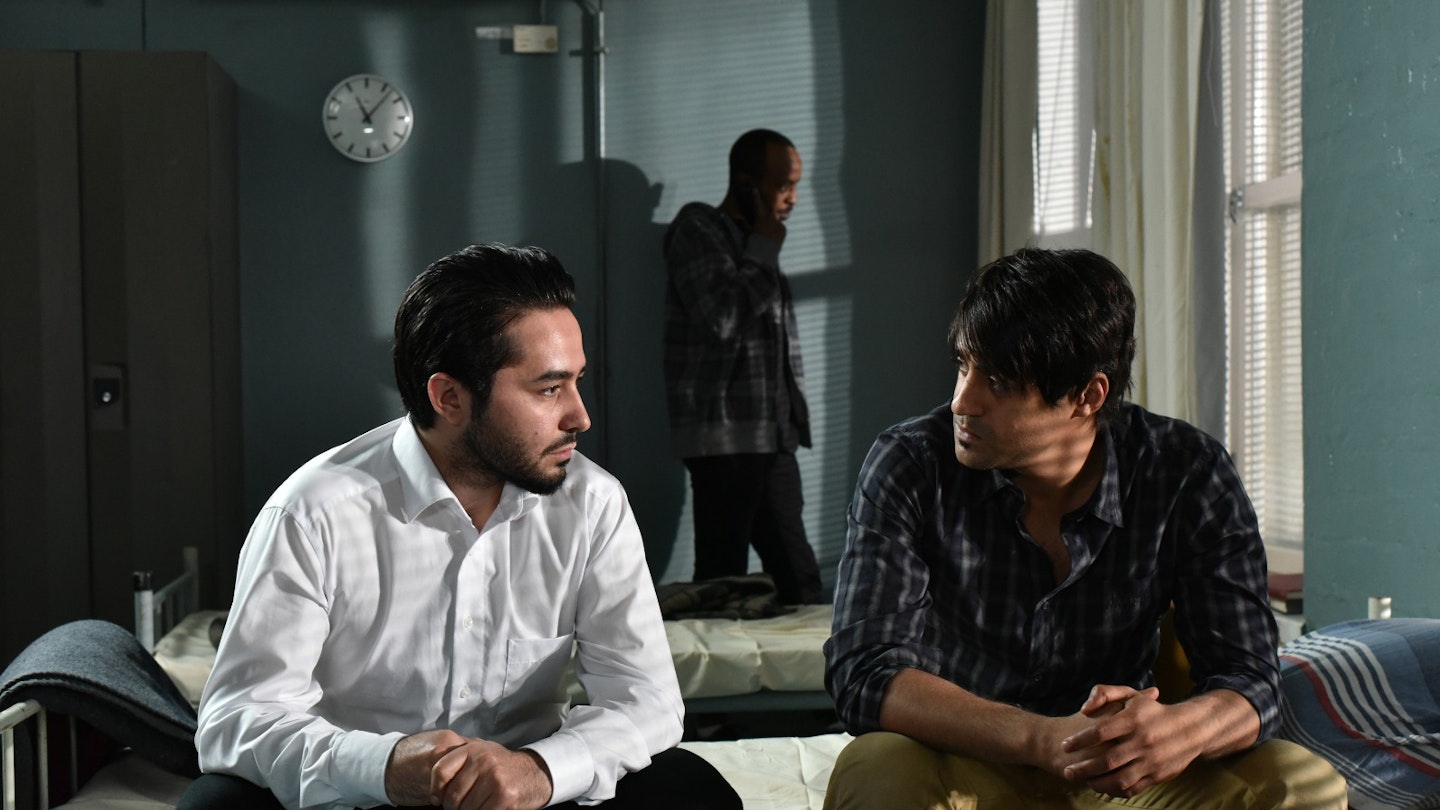A droll chronicler of the mundane rhythms of life, Aki Kaurismäki wouldn’t have been the first director you’d imagine regularly tackling the current refugee crisis. Until his previous film, African migrant drama Le Havre, the closest the Finnish writer/director had come to a full-blown migration crisis was getting the Leningrad Cowboys’ quiffs into America.
Yet with The Other Side Of Hope he delivers what is easily his most political movie yet, a two-finger salute to cold-hearted bureaucracy and his homeland’s apathy in the face of the humanitarian crisis. In true Kaurismäki style, of course, it’s done with bone-dry wit, a gentle streak of melancholy, fixed cameras and a smattering of silly sight gags.
This one will linger longer than most.
Inhabiting his latest world are two contrasting men: Waldemar Wikström (Leningrad Cowboys Go America’s Kuosmanen), a salesman who drives a vintage car as solid and uncompromising as him, and Aleppo native Khaled (Haji), who’s been accidentally smuggled into the city. The opening suggests an odd-couple friendship in the offing, but contrary to the last, Kaurismäki keeps his pair of loners apart until much later in the story.
Instead Khaled is followed from his arrival to the euphemistically named Reception Centre, via an encounter with some blank-faced cops. In keeping with the current climate, Khaled’s real reception involves a clinical interrogation at the hands of state pen-pushers. His request for asylum is rejected on the basis his hometown is safe to return to, a scene Kaurismäki pointedly abuts with reportage of a newly bombed hospital in Aleppo. There’s no sense the bureaucrats
even watch the news, however. It’s an insular, unfeeling world Khaled is forced to navigate.
Sherwan Haji, a Finnish-Syrian actor appearing in his first film, presents Khaled as a doughty soul handling his circumstances with unflappable dignity, wanting only to be reunited with his sister. Kaurismäki, meanwhile, presents his countrymen’s coldness and prejudice with disdain. A group of racists intermittently harass the young Syrian, only to be revealed as cowards when the odds aren’t stacked in their favour.
But if the film’s genesis — the tumult caused by the arrival of 32,000 refugees in Finland in 2015 — has clearly stirred some serious soul-searching in the director, righteous anger isn’t allowed to get in the way of the gentle thermals of humour that run throughout. “The melancholics are the first they send back,” Khaled is warned by a fellow asylum seeker. “Just don’t smile in the street. They’ll think you’re crazy.”
When it finally arrives, the encounter between the grouchy salesman-turned-restaurateur and the young refugee gives way to some of the film’s funniest, most affecting scenes. Found sleeping outside Wikström’s retaurant, Khaled is first fixed up with fake ID, then put on the payroll. Through his eyes, we witness Wikström as he reinvents his new café into a sushi restaurant. The result makes Timothy Spall’s The Regret Rien in Life Is Sweet look like The Savoy Grill. It hardly matters: somewhere among the wasabi-dolloped nigiri, Khaled finds himself a strange new family.
These are the everyday kindnesses — often inadvertent — that keep Kaurismäki’s oddball worlds turning. His wit and humanism carve out a special if rarely heralded niche for his films. This one will linger longer than most.
